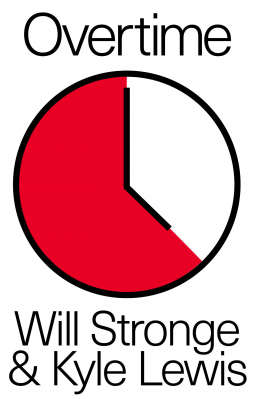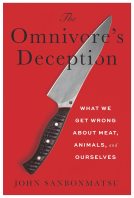
Overtime
Why We Need A Shorter Working Week
by Will Stronge; Kyle Lewis
This title was previously available on NetGalley and is now archived.
Send NetGalley books directly to your Kindle or Kindle app
1
To read on a Kindle or Kindle app, please add kindle@netgalley.com as an approved email address to receive files in your Amazon account. Click here for step-by-step instructions.
2
Also find your Kindle email address within your Amazon account, and enter it here.
Pub Date Sep 14 2021 | Archive Date Sep 14 2021
Verso Books (US) | Verso
Talking about this book? Use #Overtime #NetGalley. More hashtag tips!
Description
As precarity and low pay become further embedded in the job market, at a time when work-related stress and exhaustion are endemic, it is clear that a new, radical approach to employment is required.
Many industries already face existential threats from automation, climate breakdown, a crisis of care, and an ageing population. In Overtime, Kyle Lewis and Will Stronge identify a powerful and practicable response to these worrying trends: the shorter working week.
This urgent and timely book shows what a shorter working week means in the context of capitalist economies and delves into the history of this idea as well as its political implications. Drawing on a range of political and economic thinkers, Lewis and Stronge argue that a shorter working week could build a more just and equitable society, one based on collective freedom and human potential, providing scope for the many to achieve a happier, more fulfilling life.
Available Editions
| EDITION | Other Format |
| ISBN | 9781788738682 |
| PRICE | $14.95 (USD) |
| PAGES | 144 |
Featured Reviews
I thought this was a good discussion about how long work weeks and long shifts are not beneficial to the work force and what can be done to change this. At least Europe has designated fiestas in the work day, wish that would happen here! This book was brief and I think just skimmed the surface of overtime work and burnout syndrome.
Recommended for the topic but did not feel like a complete book given the length, so much more could have been mentioned.
Thanks to Netgalley, Will Stronge and Verso Books US for an ARC in exchange for an honest review.
Available: 9/14/21
This was a decent overview of the issue of overworking and some things that can be done moving forward. It also goes into why reducing the workweek is beneficial.. I definitely learned things but it was incredibly short. It's almost not worth writing with how short it was, honestly. I felt it could have benefitted from some expansion on all fronts. A good survey of the concept and issues that can help familiarize you with the topic.
Time well spent is liberating. Time as a phenomenon, when expended according to one’s own volition is delightful. Time allowed to lapse at a pace that is not dictated by the whims and fancies of a third person is fulfilling. Thus, even a great degree of time spent idling away is time fruitfully utilised, provided the act of doing ‘nothing’ is purely voluntary and bereft of, and uninduced by all conditionalities. Unfortunately not many of us can lay claims to enjoying a spell of time, the likes of which has been alluded to above. Unless we are sitting on a pile of inherited wealth, and our names happen to be Jeff Bezos or Bill Gates.
In their slim book, “Overtime” Will Stronge, Director of Research at Autonomy, an independent, progressive think tank focusing on the future of work, and Kyle Lewis, co-founder of Autonomy, make a stirring and candid argument for a shortening of the stereotypical five day working week. Adroitly and assiduously banking on three or key critical ‘planks’, the duo posit a case for a four day working week. However for this seemingly radical concept to materialize, there needs to be fostered the realisation that treating such a potential change as radical is indeed the biggest folly. A paradigm shift needs to overcome the attitude and intent of the employers. The employees need to be invested with the necessary pecuniary security and there ought to be no compromise whatsoever in their payouts in a transition to such a scheme.
Writing for The Conversation, Anthony Veal, Adjunct Professor, Business School, University of Technology Sydney, evaluated the four-day working week experiment instituted by the epitome of progressive nations, Iceland. As Veal illustrates, in reality the studies involving Reykjavík City Council and the Icelandic government. The trials covered 66 workplaces and about 2,500 workers revealed that “workers moved from a 40-hour to a 35- or 36-hour week, without reduced pay.” In actuality a shift to a four-day working week should have ideally compressed the total number of weekly work hours by seven or eight hours instead of just four hours. Even so there is no denying the fact that the single greatest upshot stemming from the experiment has been the demonstration that, where there is a conviction, there can be implemented a reformist working mechanism.
Spurred on by the COVID-19 pandemic, initiatives similar to that of the Icelandic experiment are being proposed by other nations too. For example as Stronge and Lewis illustrate, Scotland’s First Minister, Nicola Sturgeon has exhorted businesses to allow employees to put in a four day week but without any accompanying loss of pay. New Zealand’s extraordinarily popular Prime Minister Jacinda Arden as well as her Finnish counterpart Sanna Marin have also expressed a keen desire to institute the four-day week arguing that such a move would result in the enjoyment of a greater degree of work-life balance.
One invariable outcome of the COVID-19 pandemic has been the phenomenon of working from home. Touted as being a democratic and ‘flexible’ arrangement of ‘discharging one’s responsibilities, working from home is neither democratic nor flexible. Under this arrangement there is an unfortunate but inevitable erasure or obliteration of the critical line separating the personal from the professional. Allowing the office to intrude into your living room or turning a blind eye to its roving presence within the confines of your bedroom can cause incalculable damage to the human psyche. Increased cases of work related depression, physical conditions such as Recurring Stress Injury are all too common. “A study carried out by the Mental Health Foundation suggested that among those working from home during the pandemic, an extra 28 hours per month were being worked on average, with clear negative impacts on health and well-being.”
The authors of ‘Overtime’ bring to the attention of the reader an age old paradox that has assailed the unit of time. This paradox materializes when time is evaluated in parallel by the employee and the employer. From an employee’s perspective, every incremental unit of time not spent at work is an opportunity for embellishing and achieving one’s self actualization needs. By this logic time is freedom. However from a capitalist’s perspective, every unit of time lost in not producing a good or rendering a service is time unfairly and unproductively spent against which a great deal of money has also been expended in the form of wages. “All time is potential production time within a capitalistic economy.” To quote Marx, “the worker is nothing other than labour-power for the duration of his own life, and that, therefore, all his disposable time is by nature and by right labour-time…”
John Maynard Keynes once envisaged a time (by 2030) where spurred by the extraordinary and exponential efficiencies of technology, the number of labour hours would be dramatically shortened. This rapid reduction, according to one of the greatest economists of our time would pose a unique problem more epistemic in its nature than economical. Man would face a conundrum in trying to understand and contemplate in the additional hours available to him, ‘what should he be as a human being’. Keynes even had an imaginatively threatening name for such a problem – permanent problem of the human race.
However, not even a decade away from 2030, we as a collective humanity are nowhere close to attaining a state where we can luxuriate mulling about philosophical dilemmas and moral constructs. A yawning chasm in the form of income and wealth inequality has created a pernicious situation of distributional disparity. While the rich keep getting obscenely richer, the poor and even the middle class are sailing a boat of stagnation. The time for sanguine thinking is not yet visible on the horizon. However a four day working week might just be the panacea for bestowing the much needed ‘nudge’ in progressing towards a horizon of hope.
But the greatest benefit of a four-day week might shore up the process of a segment of the population that has been unfortunately, unerringly and undeservingly been neglected and stereotyped from time immemorial – women. During the COVID-19 pandemic, it was found that, “77 percent of the workforce who have ‘high-risk’ jobs are women, and that women make up a staggering 98 percent of workers on high-risk jobs that are being paid poverty wages’. A report prepared by the authors’ own think-tank in tandem with another think tank named Compass, and the 4 Day Week Campaign, revealed the distinctly uncomfortable fact that “women are 43 percent more likely than men to have increased their hours beyond a standard working week during COVID.” The banishment of women to the kitchen not only seems to be a continuing tendency, but it seems to be a demeaning attribute foisted onto them despite the strides of progress made by them that sees them at the helm of many a Corporate Board. The ‘unpaid labour’ that women put in at home on an average is estimated to be worth a staggering GBP 449 billion according to 2015 data.
Italian and American scholar, teacher, and activist Sylvia Federici in a famous tract, Wages Against Housework, vociferously argued that there ought to be demanded by women who were subject to the ‘gendered cage of housework’, an appropriate payment. This payment was a talismanic gesture at denaturalizing and divorcing the taxing and repetitious chores of housework from the feminine. According to Federici, “it is the demand by which our nature ends, and our struggle begins.”
The authors also argue in closing that a four-day work week also abets the ongoing clamour for ‘de-growth’ and a frantic call for moving away from the metric of the Gross Domestic Product. A four-day work week would also stamp out a great deal of carbon footprint.
“Overtime” is an insightful and thought provoking book whose relevance is amplified by the peculiarly dangerous and unique time we are living through and in, right now.
(‘Overtime: Why We Need A Shorter Working Week, is published by Verso Books and will be released on the 14th of September 2021)
Thank you Net Galley and Verso Books for the Advance Reviewer Copy
Readers who liked this book also liked:
John Sanbonmatsu
Cooking, Food & Wine, Health, Mind & Body, Nonfiction (Adult)
Judith Orloff; Jennifer Adams
Children's Fiction, Middle Grade, Parenting & Families


















